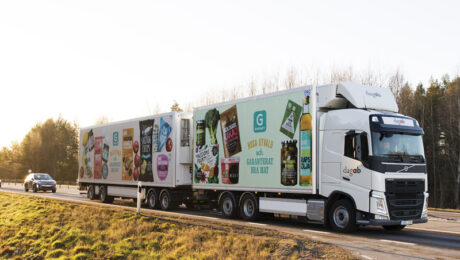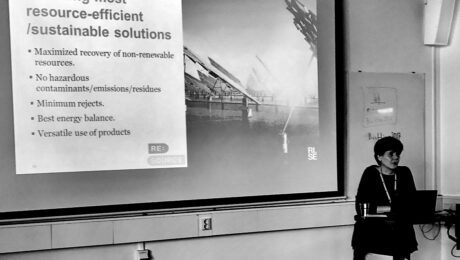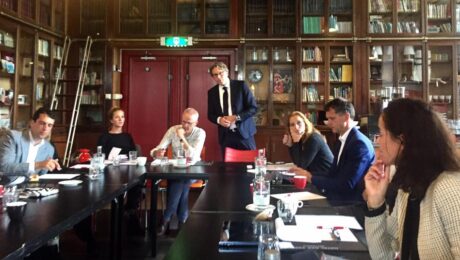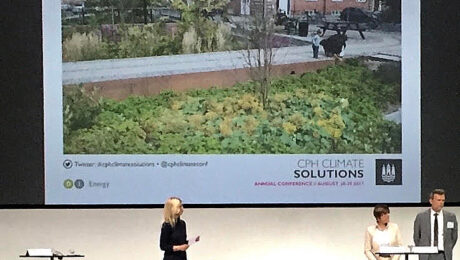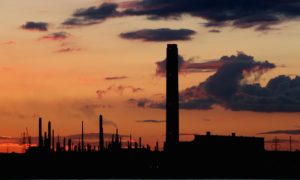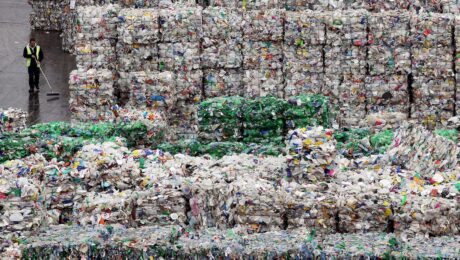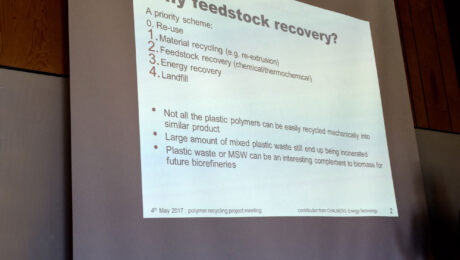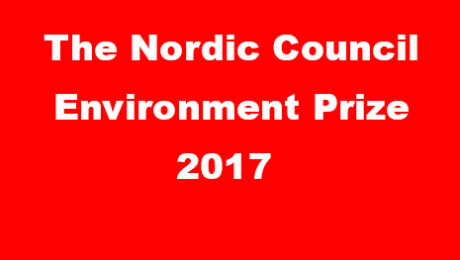
Interesting Conference with focus to make the aviation industry more sustainable.
The goal with the conference is to seek an agreement on tangible ways to promote uptake of sustainable jet fuel in the Nordic countries and possible offer examples for other regions and countries to follow.
The ambition is to involve all stakeholders in the aviation industry and aviation fuel suppliers as well as civil society organisations, national authorities and ministers responsible for energy and/or aviation.
The aviation industry aims to stabilise CO2 emissions at 2020 levels and requiring airlines to offset the growth of their emissions after 2020. One of the measures required is increasing the use of sustainable jet fuel. Development, production and supply of sustainable jet fuel involves many sectors and actors. There is a need to think across both ministries, business models and national borders. Being in forefront of these developments will attract investment, create clean technology solutions and new jobs.
Nordic Energy Research (NER) together with Nordic Initiative for Sustainable Aviation (NISA) will host this conference to promote Nordic leadership in sustain-able jet fuels. Our intention is to consider key recommendations from stakeholders in-order-to explore how various initiatives, policy frameworks can enable increased use of sustainable jet fuel in the aviation sector.
Read more about NER – Nordic Energy Research and NISA – Nordic initiative for Sustainable Aviation

SWESTEP was invited by Scandinavian Partner LaB, on participating on a workshop on the EU project INTERREG Öresund, Kattegat, Skagerrak.
It turned out be an good, constructive and fruitful day with both new contacts and projects to follow up on.
Host of the event where for the event was SCANDINAVIAN PARTNER LAB is under the umbrella of INTERREG – Öresund, Kattegat, Skagerrak and the European Regional Development Fund.
On the picture from the left; JP Morgan Friberg Creative Director – New Business SWESTEP, Ole Langeland Pedersen – Consult and advisor INTERREG ÖKS / EU
Link to more information about Scandinavian Partner LaB – Click here
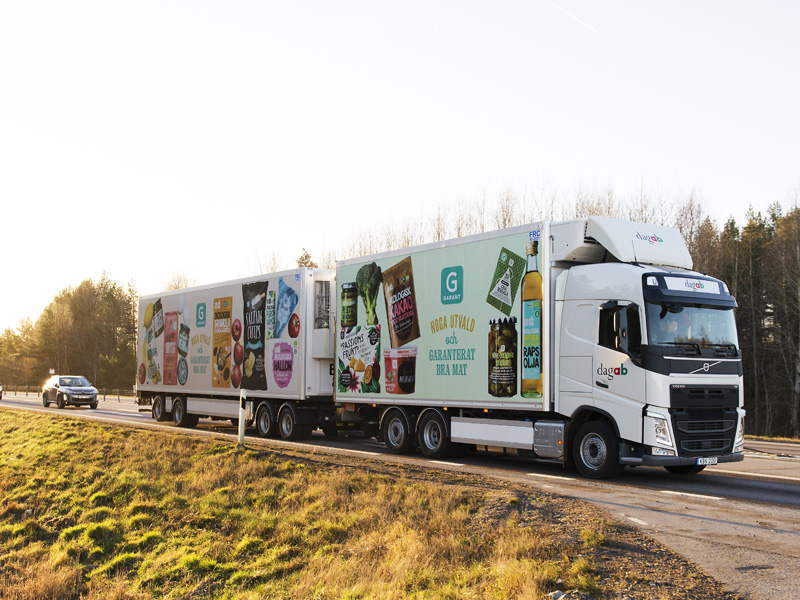
Lastbil
NEWS FROM – MARKET
Axfood in Sweden takes its climate responsibility and stops choosing to fuel their trucks with HVO.
Åsa Domeij Sustainability Manager / Axfood says;
Now we stop to refuel our trucks with HVO, it contains palm oil and large-scale production of the risks driving the deforestation of the rainforest. Instead, Axfood calls for actions that promote the production of sustainable biofuels.
SWESTEP welcomes this decision, and hopes that more companies in Sweden will follow and choose renewable fuels that will not affect the natural balance of nature’s fauna. We recommend to look at WTL (Waste To Liquid) or WTE (Waste To Energy) as an alternative. Organic waste, incl. plastics is the future green raw material to produce renewable fuels that is viable in the coming CO2 Neutral Economy.
Source MARKET – Read the full article (in Swedish) – click here
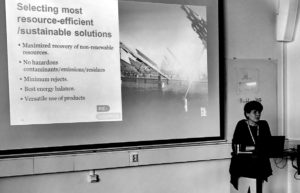
Interesting and fruitful workshop at KTH on feedstock recycling of polymers.
Molecular recycling (so-called feedstock recycling) offers an opportunity for converting different qualities of plastic material into chemical raw materials with properties similar to those obtained from virgin feedstock.
This is a key element for enabling circular flow of polymer materials since all polymers are subject to aging and cannot, consequently, be reused or material recycled endlessly.
The main objective of this project is to establish an effective mechanism that will support the development of best-tailored solutions enabling circulation of polymer materials and to find a model for this mechanism to function well in the future.
The topic of the day was;
- Finding viable technological solutions for different polymer products based on their structure and properties.
- What kind of instrument is needed to assist technology users in their decision making and for technology providers to find their customers?
- How can future platform/test bed serve both groups in the match-making in the best way?
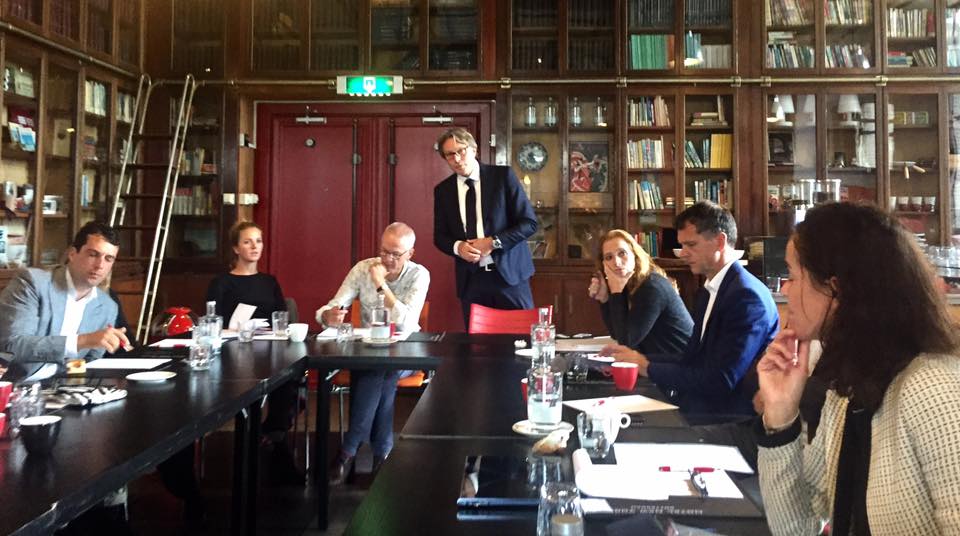
SWESTEP meeting with the management team of the Port of Rotterdam.
Invited by Clean Tech Delta and the city of Rotterdam, we were given the opportunity to introduce SWESTEP as an alternative for how the harbor can recycle all organic waste, including plastics, to renewable fuels, energy and oils which in turn can be refined to performance chemicals and other liquids for most fossil dependent industries.
It was gratifying to have the harbor’s confirmation that we share the same view regarding the future of renewable fuels, energy and the importance of adapting all activities to both the circular economy and the CO2 neutral economy.
On the agenda was also discussions on new and forthcoming legislation on;
- Waste handling and recycling
- Marine fuels and also other renewable fuels for aviation and land based transportations.
- Guidelines and restrictions for both incineration plants and landfills
All the three points are key issues that the harbor must take decisions on how to deal with and resolve.
Port of Rotterdam is Europe’s largest port, with the exception of the shipping traffic loading and unloading freights and liquid products, there are refineries and industries from most segments in the port area.
The Port of Rotterdam has set itself the goal of becoming fossil-free in 2050, and SWESTEP’s hopes are to be one of the companies that supplies the harbor with a solution to help them achieve this goal.
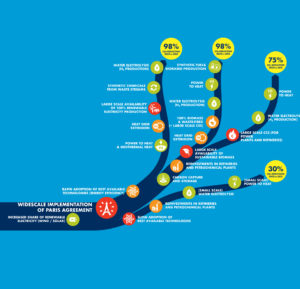
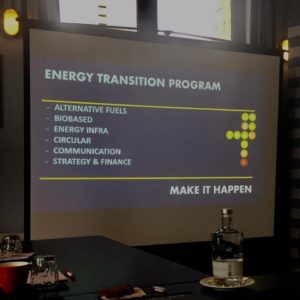
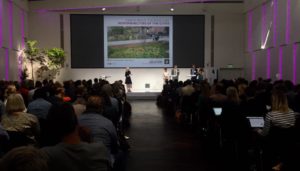
SWESTEP participated at the CPH Climate Solution Conference in Copenhagen Denmark.
It was two intense days filled with interesting workshops, speeches and networking.
Copenhagen has set itself the goal of becoming Europe’s purest capital; so there were many
debates and discussions on incineration plants, waste handling and recycling, renewable
fuels and energy forms.
Reusing or Recycling of waste from both the Circular-, and CO2 Neutral Economy from a producer’s
responsibility, product life cycle and close the loop perspective, was also subjects discussed.
European countries spend billions a year on fossil fuel subsidies, survey shows
Governments of 11 European nations are providing subsidies totalling more than £80bn a year to fossil fuel industries, green campaigners have claimed.
Transport fuels account for the lion’s share of the support to fossil fuels. Many of the 11 countries surveyed encourage drivers to use diesel as it produces less carbon per mile than petrol, despite the fuel’s effects on air pollution which is particularly harmful to children. For many years, governments had incentives to prioritise the use of diesel, as it helped them meet internationally-set carbon reduction targets.
A substantial amount of the claimed subsidies are for fuels such as gas, which is viewed by many as a transition away from more carbon-intensive fuels such as coal.
Taxpayer support for electric vehicles, renewable electricity and other low-carbon efforts were not counted in the study by the Overseas Development Institute (ODI).
In the UK, diesel fuel is taxed by volume at the same rate as petrol. This taxation can favour the dirtier fuel because diesel cars travel further than petrol vehicles on the same volume of fuel.
Half of the support provided to fossil fuels was targeted at low-income households, the report acknowledged. Such measures by governments are intended to protect people on low incomes from fuel poverty. Nearly €5bn of the overall support was provided in this way by the UK government alone.
Shelagh Whitley, head of climate and energy at the ODI, said: “The air pollution crisis in cities across Europe and the recent diesel emissions testing scandal have rightly led to increased pressure for governments to act [on air quality]. Yet our analysis shows European countries are providing enormous fossil fuel subsidies to the transport sector.”
“This study shows how governments in Europe and the EU continue to subsidies and finance a reliance on oil, gas and coal, fuelling dangerous climate change and air pollution with taxpayers’ money.”
Source – The Guardian Read the full article – click here
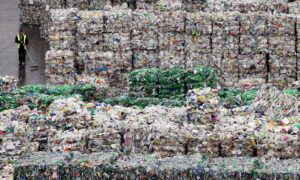
Stop exporting plastic waste to China to boost recycling at home, say experts
Governments must end incentives that see plastic waste shipped abroad, where it may be buried or burned, rather than being turned back into bottles at home, say industry leaders
Governments must stop exporting so much plastic waste to countries such as China and keep more in-country to be recycled into bottles to tackle the waste crisis, industry insiders say.
A day after the Guardian revealed that a million plastic bottles are bought every minute across the world, experts aiming to provide a closed loop in which each bottle is used to make a new one, say their industry faces multiple hurdles.
Chris Brown of Clean Tech, based in Lincolnshire – the only site in the UK which produces food grade recycled polyethylene terephthalate (Pet) from plastic bottles to turn them into new bottles – said: “It has been a very challenging environment.”
“The recycling of Pet back into rPet (recycled plastic) is a relatively new industry and it has proven very difficult for any businesses to survive in recycled plastics. The margins are such that they struggle to be successful, particularly when the processes require large capital investment and present a significant technological challenge.”
He called for the UK government to end the incentives for export of post consumer plastic to China and other countries – more than two-thirds of plastic collected for recycling in the UK was sold abroad in 2016, where it may be incinerated or buried rather than recycled according to industry experts quoted by Greenpeace.
“Being able to keep more of that material in this country would be better for the bottle manufacturers and their customers,” he said. “It is important that the feedstock is available for rPet producers, so what we would like to see is an end to the incentivising of its export. Having an incentive to export the bales instead of keeping them in the country to be used to make more plastic bottles does not seem like what we should be doing at the moment.”
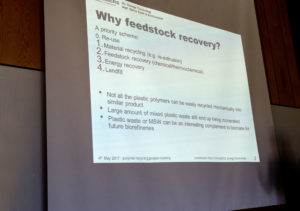
FEEDSTOCK RECYCLING WORKSHOP
The workshop was held at Johannesberg Science
Park at Chalmers in Gothenburg.
The workshops focus is to find viable ways for
molecular recovery (so-called feedstock recycling).
The goal within this project is to find solutions to recycle different grades of plastic
into new sustainable raw materials and circular materials with product characteristics
that correspond to the markets need and requirements. This is important in order to
increase recovery, circularity and reduce the dependence of fossil raw materials.
The participants in workshop/project are a broad mix of representatives from
universities, waste management companies, petrochemical industry, municipalities
and several companies from the private sector.
Within this “Feedstock Recycling Project” the ambition is to find answers on if
there is enough interest and knowledge to drive a future test bed and how it should
be designed in the form of technology and business model. The outcome/result will
be presented in a report for decision makers from both the public and private sector.
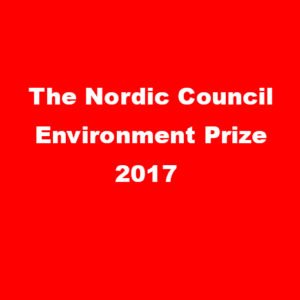
Climate KIC Nordic in Denmark has nominated SWESTEP for
the Nordic Council Environment Prize 2017.
The prize goes to a company, organisation or individual for exemplary
efforts to integrate respect for the environment into their business or
work or for some other form of extraordinary initiative on behalf of
the environment.



